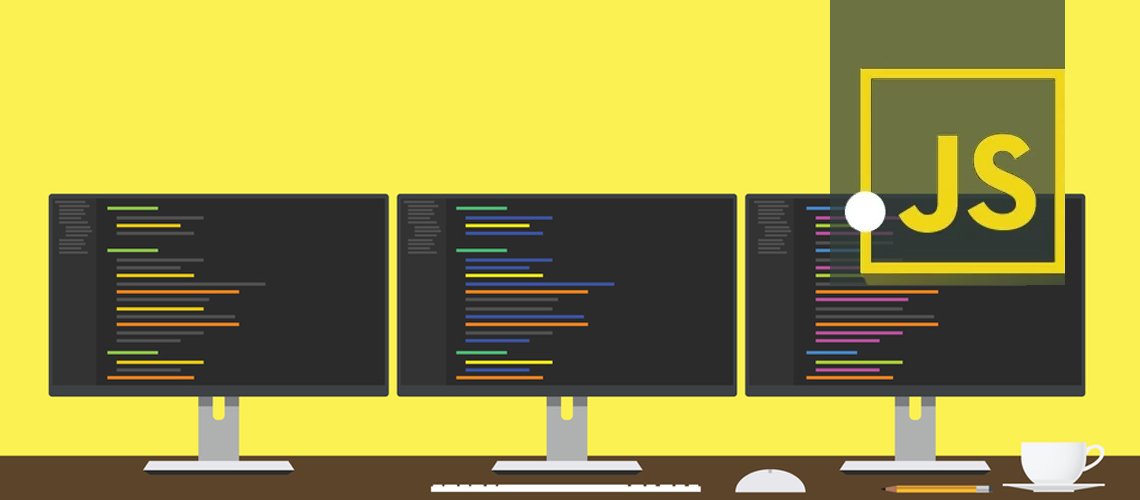
Many enterprises nowadays opt for full stack we application development to reduce both developments time and cost. In addition to being proficient in client-side and server-side web technologies, a full stack web developer further synchronizes the frontend and backend of a website seamlessly according to precise business requirements. Several studies suggest that JavaScript is currently the most popular programming language for full stack web development. Nowadays, JavaScript is extensively used for building large scale complex web applications.
Developers can integrate JavaScript, HTML5 and CSS3 to create web applications that look good on both computers and mobile devices. They can take advantage of cross-platform runtime environments like NodeJS to execute JavaScript code on the server side. Hence, full stack developers can use JavaScript to write client-side code that run on web browsers and server-side code that is executed on the web server.
The web developers can even accelerate full stack web development by leveraging four open source components of MEAN stack – MongoDB, ExpressJS, AngularJS and NodeJS. MEAN Stack accelerates full stack web application development by integrating JavaScript-based frontend and backend technologies. A developer can simplify frontend development using AngularJS and backend development using ExpressJS. Also, the developers can accelerate custom web application development by taking advantage of a number of robust full stack JavaScript frameworks.
Overview of 5 Robust Full Stack JavaScript Frameworks
1) Meteor
The open source platform enables developers to build both web applications and mobile apps with JavaScript without writing additional code. In addition to keeping the code concise and maintainable, Meteor further allows programmers to reuse the JavaScript code from desktop, web, and mobile applications. The full stack reactivity provided by Meteor helps JavaScript programmers to build user interfaces (UI) that appear natural and deliver richer user experience. At the same time, the framework improves the performance of applications by making the web server send data to the client for rendering instead of HTML. We are pretty sure about the future popularity of Meteor js.
2) MERN
The scaffolding tool accelerates full stack JavaScript by replacing a core component of MEAN stack – AngularJS with ReactJS. Hence, developers can use MERN to build web applications by combining MongoDB, ExpressJS, ReactJS and NodeJS. Based on requirements, developers have option to choose from two editions of MERN – MERN Starter and MERN cli. MERN Starter simplifies development of universal web applications by providing a powerful boilerplate project. On the other hand, the developers can use MERN cli as a command line tool work with web development projects more efficiently, while availing code generation and scaffolding features.
3) Sails.js
The open source framework enables full stack developers to build custom NodeJS applications without putting extra time and effort. The developers can use Sails to write both frontend and backend of an application in JavaScript. In addition to being a popular NodeJS framework, Sails is compatible with both web and mobile frontends – AngularJS, ReactJS, iOS, Android, and Windows Phone. It further simplifies development of large and complex web applications by supporting model-view-controller (MVC) programming paradigm. The developers can take advantage of a robust ORM system like Watrline to work with multiple databases through a simple data access layer. At the same time, Sails accelerated backend development through blueprints without required developers to write additional JavaScript code.
4) CompoundJS
CompoundJS enables developers write web applications in JavaScript based on a robust NodeJS framework – ExpressJS. The developers can take advantage of ExpressJS to add robust features to the web application without writing additional code. At the same time, CompoundJS also enables them to integrate ExpressJS with structure and extensions. While developing a web application, the programmers can use structure as the standard layout of directors. Likewise, they can use extensions as node modules to add functionality to the frameworks according specific needs of the project. Hence, CompoundJS accelerated full stack web application development by providing a well organized interface for ExpressJS-based web applications.
5) Koa
Many web application developers often ask us ” What is Koa js“. Koa is developed as a modern NodeJS framework by the team behind ExpressJS. Despite being a lightweight framework, Koa provides a robust foundation for development of both web application and APIs. Unlike conventional web frameworks, Koa is not designed with a core middleware. But the elegant methods provided by Koa makes it easier for programmers to write high quality server-side code in JavaScript. Also, the developers can improve error handing process significantly by replacing call backs with the generators provided by Koa. They can even use Koa just like other middleware systems and Koa applications as an object containing multiple middleware functions.
On the whole, JavaScript developers have the option to choose from several full stack JavaScript frameworks. While comparing full stack JavaScript frameworks, he must keep in mind some shortcomings of full stack development. For instance, NodeJS does not support heavy computation tasks and huge data processing on the server side. Hence, the developers must choose the right full stack JavaScript frameworks to make the web application deliver richer user experience by overcoming these constraints.